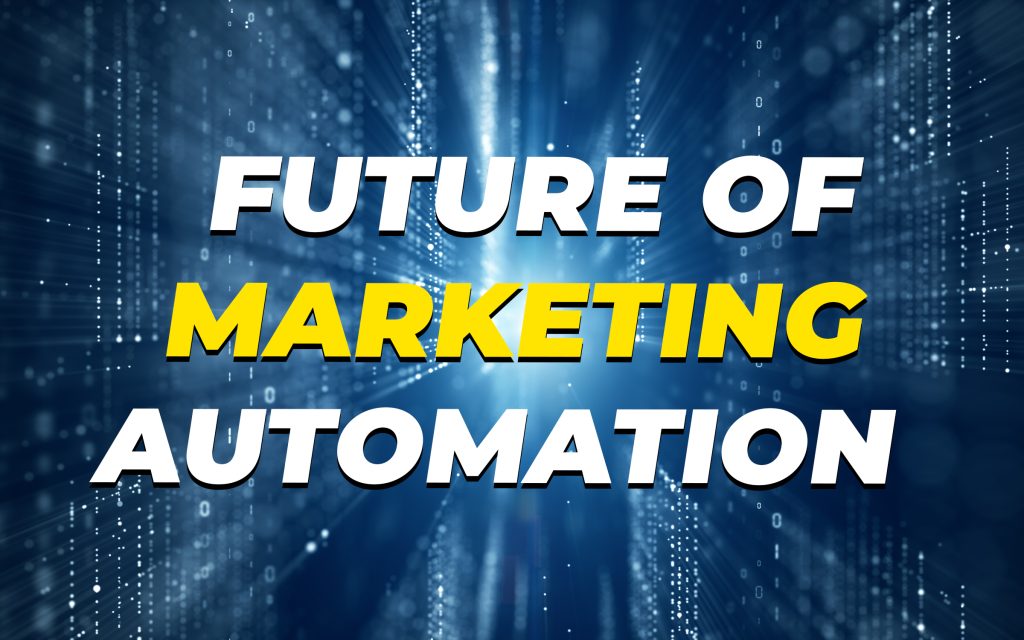In the ever-evolving landscape of digital marketing, staying ahead of the curve is paramount. Marketing automation has been a game-changer, streamlining processes, increasing efficiency, and driving results. But what does the future hold for marketing automation, especially with the integration of artificial intelligence (AI)? In this article, we’ll delve into the exciting possibilities and explore how AI is shaping the future of marketing automation.
The Current State of Marketing Automation
Before we peer into the future, let’s first understand where we stand with marketing automation today. Marketing automation refers to the use of software and technology to automate repetitive marketing tasks and workflows. It enables businesses to target their audience more effectively, nurture leads, and provide personalized experiences.
Key Benefits of Marketing Automation:
Improved Efficiency:
Automation reduces manual labor, allowing marketers to focus on strategy and creativity.
Enhanced Personalization:
Tailored messages and content drive higher engagement and conversions.
Data-Driven Decision Making:
Detailed analytics provide valuable insights for refining marketing strategies.
How AI is Revolutionizing Marketing Automation
1. Predictive Analytics
AI algorithms analyze historical data to predict future trends, helping marketers make data-driven decisions. Predictive analytics can anticipate customer behaviors and preferences, enabling businesses to tailor their strategies accordingly. For example, if AI predicts a customer’s interest in a particular product, automated marketing campaigns can be triggered to showcase that product to the customer.
2. Customer Segmentation
AI-powered marketing automation tools can segment customers based on their behavior, demographics, and interactions with the brand. This allows for highly targeted and relevant content delivery, which in turn increases engagement and conversions. By sending the right message to the right audience at the right time, businesses can achieve higher ROI.
3. Chatbots and Virtual Assistants
AI-driven chatbots and virtual assistants are transforming customer service and engagement. These bots can provide instant responses to customer queries, offer product recommendations, and even complete transactions. They enhance user experiences and are available 24/7, ensuring consistent support.
4. Content Generation
AI can assist in content creation by generating personalized product recommendations, email subject lines, and even entire articles. This streamlines content marketing efforts and ensures that content remains fresh and relevant.
5. Marketing Attribution
AI helps marketers attribute conversions to specific touchpoints in the customer journey accurately. This insight is invaluable for allocating resources effectively and optimizing marketing channels.
The Future Outlook
As AI continues to advance, the future of marketing automation holds immense promise. Here are some exciting possibilities:
- Hyper-Personalization: AI will enable hyper-personalized marketing experiences, with content and offers tailored to each individual customer’s preferences.
- Real-time Data Analysis: AI will process data in real-time, allowing marketers to respond swiftly to changing trends and customer behavior.
- Voice and Image Recognition: Voice and image recognition technologies will open new avenues for interactive marketing.
- AI-Generated Creativity: AI will assist in creative endeavors like designing ad campaigns, creating visuals, and composing music.
- Enhanced Security: AI will play a crucial role in protecting customer data and preventing cyber threats.
Conclusion
In conclusion, the future of marketing automation with AI is a landscape filled with endless possibilities. By harnessing the power of AI-driven tools and technologies, businesses can anticipate customer needs, create hyper-personalized experiences, and stay agile in an ever-changing market. The integration of AI into marketing automation is not just an option but a necessity for businesses looking to thrive in the digital age.
As you navigate this exciting frontier, remember that success lies in staying adaptable and continually exploring new AI-driven solutions to enhance your marketing efforts.
For more insights on the intersection of AI and marketing, check out this article on “The Rise of AI in Digital Marketing.”

